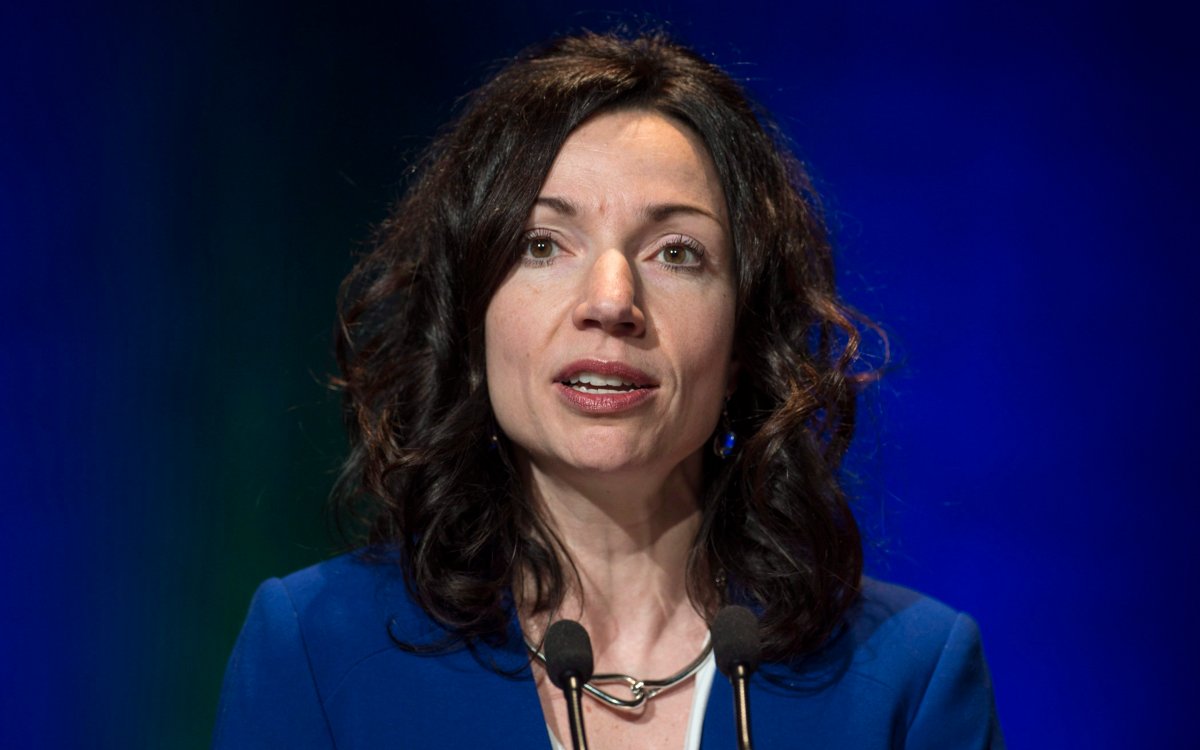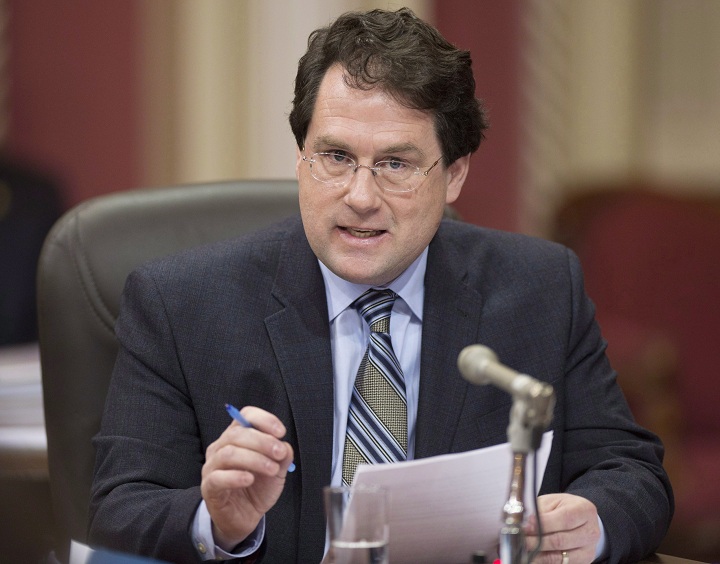MONTREAL – Pierre Karl Péladeau‘s political resignation on Monday means the Parti Québécois is once again looking for a new leader, less than a year after electing the longtime businessman and media mogul.

READ MORE: Pierre Karl Péladeau quits PQ leadership, politics
So, who are some of the possible candidates?

Alexandre Cloutier
At 38 years old, Alexandre Cloutier finished second behind Péladeau in last year’s leadership race with 29.2 per cent of the vote.
A lawyer by training, he was first elected to the legislature in 2007 and served in cabinet from 2012 to 2014.
He has considerable following in party’s youth wing.
Cloutier has a master’s degree from Britain’s Cambridge University.
In 2002, he served as clerk for former Supreme Court justice Charles Doherty Gonthier.
Martine Ouellet
Martine Ouellet, 47, finished third behind Péladeau last year with 13.2 per cent of the vote.
Her political views are considered left of centre. Ouellet was first elected to the National Assembly in 2010 and served in cabinet from 2012 to 2014.
She is a mechanical engineer who has a master’s degree in business administration and held several positions with Hydro-Quebec.
Bernard Drainville
Best known in English Canada as the man behind the PQ’s Charter of Quebec Values, Bernard Drainville, 52, ran in last year’s leadership race but dropped out to support Péladeau when he realized he would lose.
READ MORE: Opinion: The insidious racism of the Quebec charter of values
He was first elected in 2007 and served as a cabinet minister between 2012 and 2014.
Drainville has a master’s degree in international relations from the London School of Economics.
WATCH BELOW: Pierre Karl Péladeau’s time in politics
Véronique Hivon
Véronique Hivon, 46, was first elected to the National Assembly in 2008.
Hivon graduated from McGill University with a degree in common law.
She also has a master’s degree in planning and analysis of social politics from the London School of Economics and Political Science.

Jean-François Lisée
Jean-François Lisée, 58, dropped out of last year’s PQ leadership race before it even began, saying it was “politically over” with the presence of media mogul PKP.
He was first elected to the National Assembly in 2012 and could throw his hat back in the ring for the PQ leadership.
He has a law degree and a master’s degree in communications from Université du Québec à Montréal (UQAM).
Lisée is a well-known political analyst, journalist, author, intellectual and sovereigntist thinker.

Jean-Martin Aussant
A possible dark horse, Jean-Martin Aussant, 46, was a former PQ member of the legislature who went on to lead Option Nationale.
He could be seen as someone who can unite various sovereigntist factions.
READ MORE: Leader of Option Nationale quits in Quebec
An economist by training, Aussant left Quebec to work in London for Morgan Stanley Capital International after Option Nationale failed to win seats in the 2012 election.
He has since returned to Quebec to work as the executive director of Chantier de l’économie sociale, a left-leaning, non-profit organization that works with community organizations tied to the so-called social economy.
— With files from The Canadian Press.








Comments